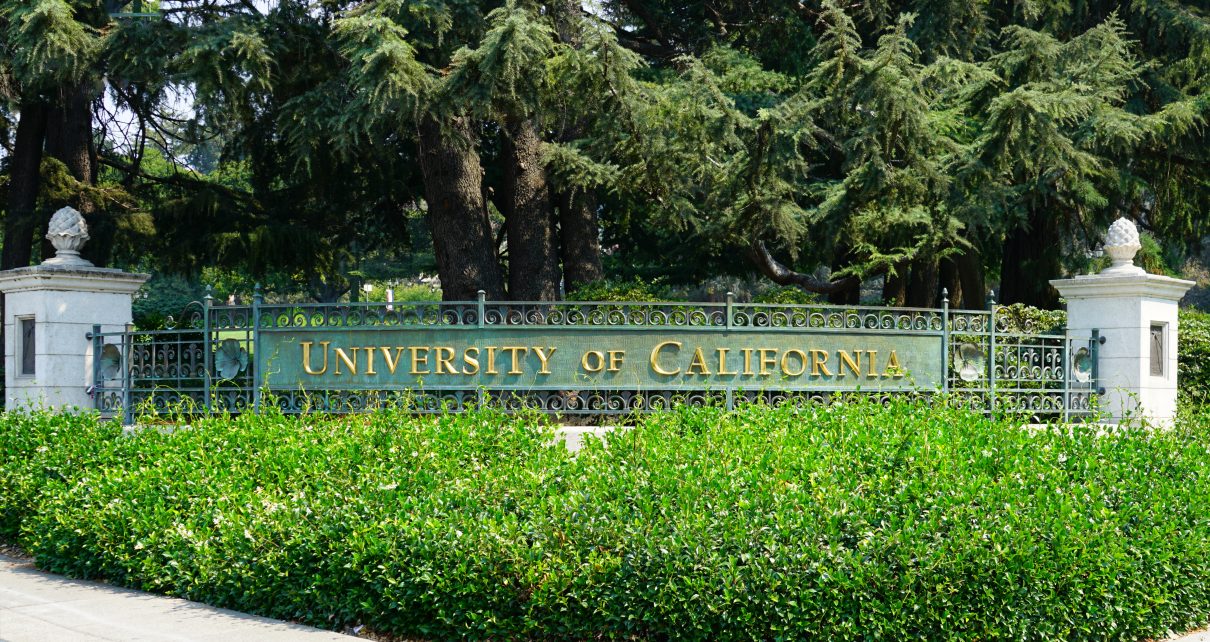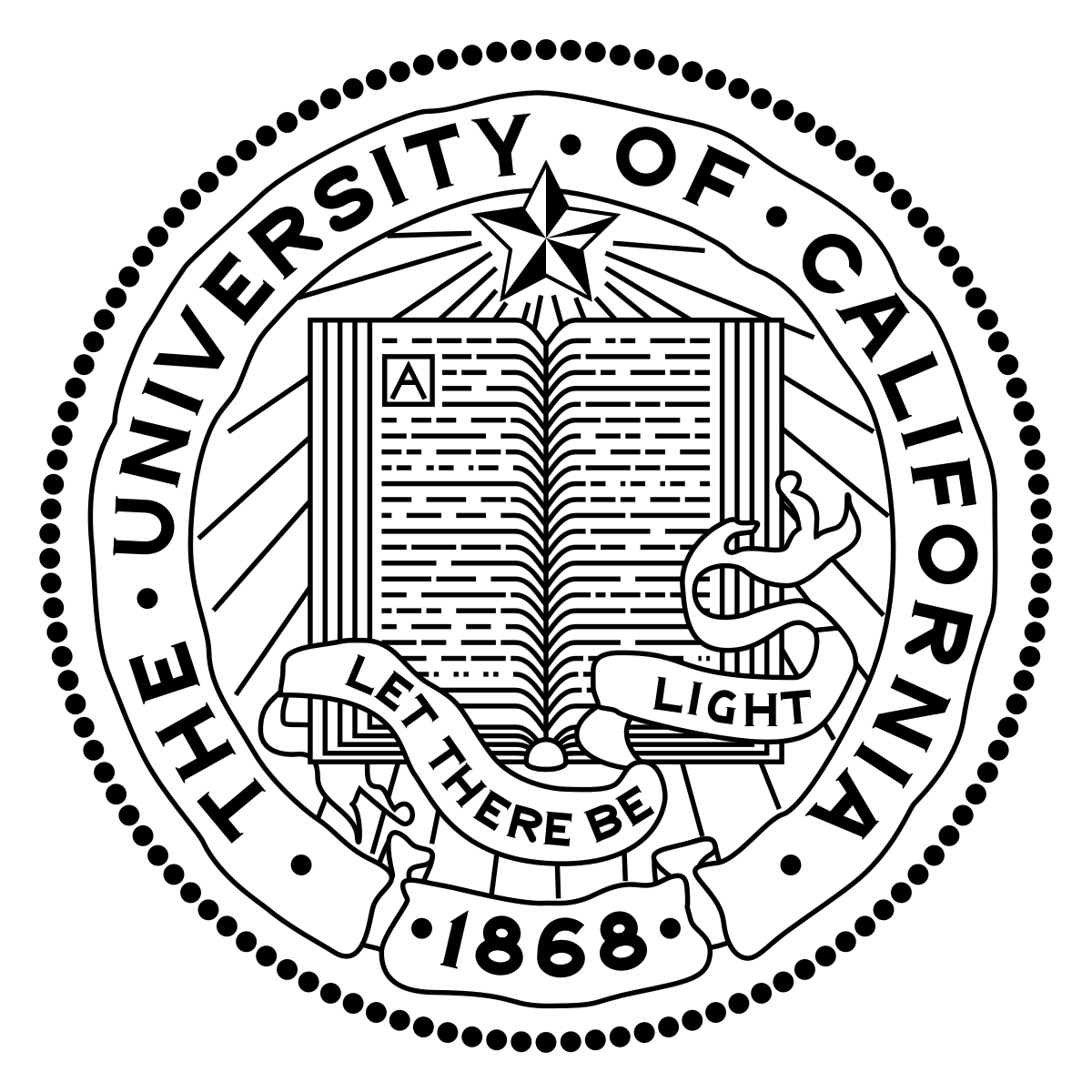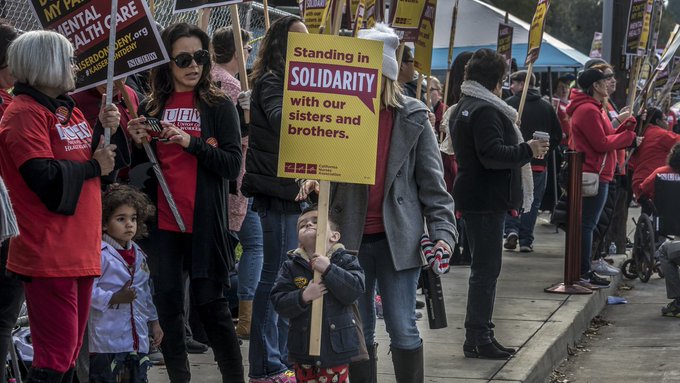
View of the campus of the University of California, Berkeley. (Photo: EQRoy, Shutterstock)
48,000 UC Workers Launch Strike Over Pay, Benefit Disagreements
‘The proposals made by the University so far don’t even match the rate of inflation and amounts to a real wage cut’
By Evan Symon, November 14, 2022 12:51 pm
48,000 University of California (UC) academic workers went on strike on Monday over pay and benefit disagreements, sparking one of the largest higher education strikes in US history, as well as the largest in the nation since 2019.
Until the weekend, the 10 UC universities had been in contract negotiations with the United Auto Workers (UAW) union, who represents four different academic bargaining units, including postdoctoral scholars, academic researchers, academic student employees (such as teaching assistants) and graduate student researchers. While the 48,000 workers had previously voted to strike in October, negotiations went into November, with tentative agreements being reached on issues like having a respectful work environment and health and safety matters.
However, agreements were not reached over issues like having higher pay and better benefits. Specifically, the unionized employees want better pay due to many being unable to find affordable housing nearby campus, as well as benefits such as childcare subsidies, expanded healthcare for dependents, and receiving public transportation passes for work. Also wanted was lowered tuition costs for international students and better accessibility for the disabled.
Many Democratic lawmakers, led by Assemblyman Ash Kalra (D-San Jose) nd Senator Dave Cortese (D-San Jose), attempted to get the two sides to reach an agreement through a letter sent on November 10th, putting more of the blame on UC rather than the unionized workers. The letter also warned of mass disruption should a strike be allowed to take place.
“As one of California’s largest employers, the UC has not only the opportunity but also the obligation to be a leader in setting industry standards for academia, thus leading the way for other public employers,” the letter said. “We urge the University of California to come to the table with the UAW’s four bargaining units in good faith to improve the working conditions of all Academic Workers and implement benefits and compensation commensurate with the immense value they provide the University. By failing to do so, UC is risking mass disruption and losing the talent that has earned UC its prestigious reputation.”
48,000 workers go on strike
While the two sides continued bargaining over the weekend, the lack of agreement on Sunday night led to the UAW calling for a strike on Monday.
“We have been bargaining throughout the weekend and while important progress has been made, we are still far apart on many of the issues that will make UC a more equitable university,” said UAW local 2865 president Rafael Jaime on Monday. “We are negotiating with the university around the clock and listening to all their offers. We’re going to be out here as long as it takes.”
As a result, TAs and other employees affected by the lack of an agreement picketed across UC campuses on Monday, including at UCLA, UC Irvine, UC San Diego, and UC Davis. Many noted that proposals put forth by the UC had failed to meet inflation rates and that classes were being disrupted as a result.
“Inflation has bitten into our earnings in a huge, huge way,” explained UCLA Teaching Fellow and Union Representative Michael Dean on Monday. “The proposals made by the University so far don’t even match the rate of inflation and amounts to a real wage cut.”
Another worker at UCLA, who wished to remain anonymous, told the Globe that many on strike were mostly indifferent, but did see the benefit of having higher pay to counter higher costs.
“A lot of us don’t want to be on strike, and in fact, some have crossed over or just working quietly on a more remote level,” said the anonymous UC employee. “That extra pay would be nice, but a lot of us just want to keep working too. A lot of us are just caught in the middle of all of this and simply want to work on through. Not happy that this is where we are at now.”
In response, the UC put out a statement on Monday saying that activity on campus would continue, and that many tentative agreements had already been formed before the strike.
“Our campuses have been preparing to mitigate the impact of any strike activity on our students by ensuring, to the extent possible, continuity of instruction and research,” read the statement. “The University of California continues to negotiate in good faith.”
Chicago-based higher education researcher John Waithe added in a Globe interview on Monday, “A lot of workers and professors and students just feel caught up in all this. Many want to have TAs and other people get higher pay and better benefits, but they also just want classes to continue as normal too and not be hurt academically. We’ve been getting e-mails with student statements about this painting that picture.”
“That’s the problem with school strikes. Schools may have limited budgets. Teachers are hurting. Both sides want and need things. But the ones who always get hurt in them are the students. They don’t win here at all. And you wonder if those people picketing outside even care about them.”
The UC strike is expected to continue while negotiations between the UC and UAW move forward.
- Bill to Require Law Enforcement Disclosure if AI Was Used To Help Write Reports - August 7, 2025
- Gov. Newsom Files FOIA Request To ‘Expose True Cost’ Of L.A. Federal Troop Deployment for Anti-ICE Riots - August 6, 2025
- California Redistricting: How Newsom’s Plan Will Demolish Hard Fought GOP Gains - August 6, 2025





Help wanted signs all over our UC campus town.
How many students still work their way through college? If these sunshine scholars want more money ,they can take a second job. They are not essential workers, so get in line and get a real job. Get to work and do something productive; not just crank out ivory tower gibberish.
This is what we did when we were college students – a great source of part time labor. Restaurant industry was the perfect match for those college years – free food offered, late flexible hours, and tips earned for good service. Learned as much on the job as I did in college. Learned to think on my feet and deal with the public, as demanding as they can sometimes be.
So they want benefits that past generations have had to provide for themselves AND want us to have to pay for their ride to work as well? Spoiled lot of freeloaders.